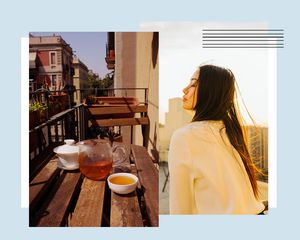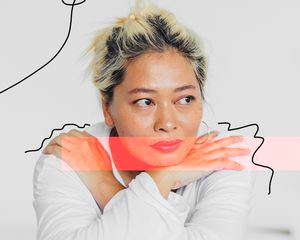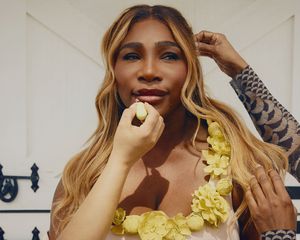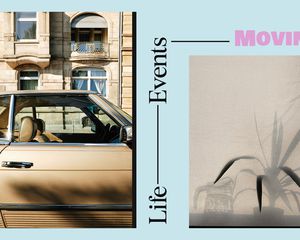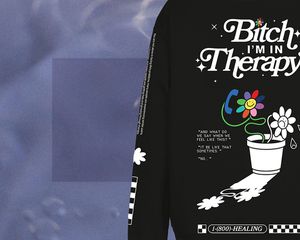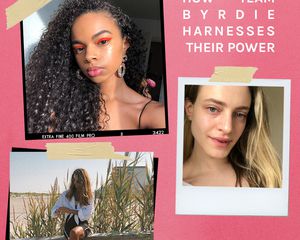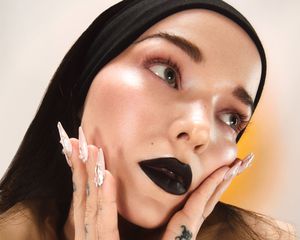I drink. And I’m assuming you might too, since you clicked on this article. So, allow me to begin with a familiar scene.
The year is 2019 and you’re a passive consumer of social media, likely scrolling the feed, wondering if your life is the only one that veers more picture-slanted than picture-perfect. Ring a bell?
The year is now 2021 and, goodness, hasn’t social media become refreshing? It’s either due to a collective, we're-trying-to-survive-a-pandemic spirit, or a social media app more than 91 million U.S. users downloaded during lockdown. Yes, I'm talking about TikTok. Almost a year into being a TikTok creator, I can confidently say that fellow creators on the app do not care to show an aspirational lifestyle. In fact, they’re doing quite the opposite, and that same unabashed spirit has trickled down to other social apps, namely Instagram.
A recent study suggests that alcohol consumption has more than doubled following the onset of the pandemic, a result that's largely pegged to "increased stress" and "boredom." But we didn't need research to confirm the need for a vice during one of the most harrowing periods in recent history—social media has confirmed this already. Creators like Tinx and Serena Kerrigan are offering this more vulnerable perspective and an unfiltered glimpse into an imperfect (read: normal) life. Outside of the digisphere, I always knew people were going out, partying, and probably not making the best decisions, but I had never seen it displayed so candidly on social channels until now. And, truth be told, it's helpful to see the honesty. While I’m sure it might come with a high price of public judgement for creators who are spotlighting their struggles as much as their successes, the flip-side is that their followers can say, "Alas there are other people hungover on a Sunday!" There's comfort and community in the realness.

Unsplash/Design by Tiana Crispino
Look, is drinking bad for you? Yes. Are people still doing it? Also yes. Let’s make space for that nuance in wellness conversations. I’m neither condoning nor condemning any of these behaviors—what I’m saying is this new gray area that’s continuing to take up space in social media, where people can finally express that working out, drinking healthy smoothies, and listening to inspiring podcasts can coexist with drinking cocktails and indulging in greasy food. I’m here for the side of the internet where we are not contained by one ideal of wellness and that instead it can be found in the depths of all these things, not exclusively because of them.
To add to that—and stick with me here—people crying on social media is a good thing. I know the immediate thought is that anyone who has the time to record themselves while they are crying is seeking attention, and perhaps in some cases that’s valid, but not every time.
Until I started making more videos on social media and comparing my successes to others online, I didn’t know the benefit of seeing someone cry on my phone. One day, I was watching a video of how one of my favorite creators started a successful business after being stuck at home during the pandemic. I was happy for her and felt I was just as capable, but ultimately, I felt deflated for the way my pandemic-related accomplishments didn’t measure up. That same day, she cried on her Instagram story. She said what you’d hear other creators say: there are bad days for everyone, feeling lost is conventional, and that she’s just as human as the rest of us. I thought to myself, I’m so glad she picked up her phone and recorded herself crying just as she would record herself dining at a restaurant. Yes, I made that comparison and here’s why.
:max_bytes(200000):strip_icc()/IG-revised-d6d595aef2ee445eb29b6a933065f3ee.jpg)
Unsplash/Design by Tiana Crispino
If there’s one lesson I learned from research professor Brené Brown, it's that we think we’re supposed to hide shame—that we should tuck away sadness, hangovers, breakups and keep them to ourselves. Perhaps sometimes, in the name of healing, we should. But if your job is to show your life on social media, it makes sense that a good chunk of your posts will consist of everything muddy, unclear, and stories that are unfolding as we share them.
What we see on social media influences how we see—that’s why there has been a significant rise in cosmetic procedures; it’s why fast fashion thrives from social ambassadors; it’s why depression and anxiety rates are increasing. So if you ask me, seeing people cry on-screen and talk about their hangovers isn’t the worst of what social media has to offer—actually, I think it might be one of the most enlightening.
If you or a loved one is struggling with alcohol addiction, you can speak to someone by contacting SAMHA's National Help Hotline, 1-800-662-HELP (4357), and find more resources here.
:max_bytes(150000):strip_icc()/Landingpage_hero_desktop-059cef5b387f4b40a3e1b4e31519834e.jpg)
:max_bytes(150000):strip_icc()/B-Sides_recirc1-981112ed82194a159178859896a85e55.jpg)
:max_bytes(150000):strip_icc()/managingsocialanxiety-RECIRC-fade19be96c54fbaa235c1bc61c6fe64.jpg)
:max_bytes(150000):strip_icc()/_USE-New-Edit-postcovidasian-RECIRC-fdd70af9dc784611be0525f8663aed3e.jpg)
:max_bytes(150000):strip_icc()/StatmentLip-RECIRC-2d4fa5792c5f43f18259f82eca700f3d.jpg)
:max_bytes(150000):strip_icc()/Gratitude-RECIRC-03f0d8b15a6845058bb2931fe8b84d1d.jpg)
:max_bytes(200000):strip_icc()/__USE_NEWEDIT_IG-header-revised-4ba6c1b3089e45d1ba81c4a031e61f27.jpg)
